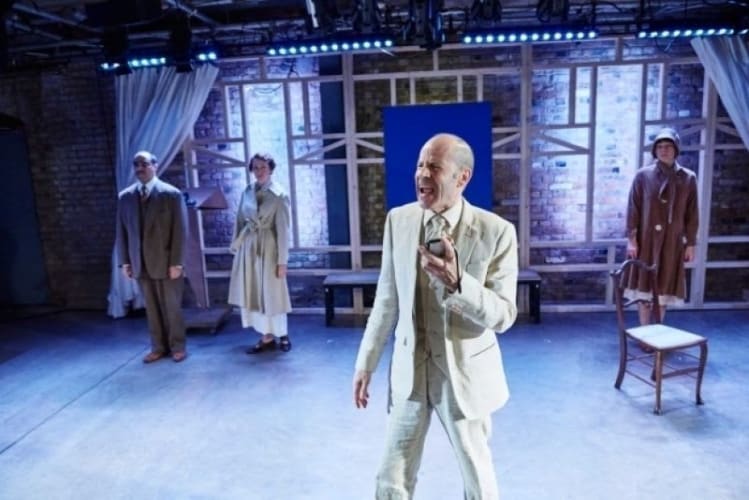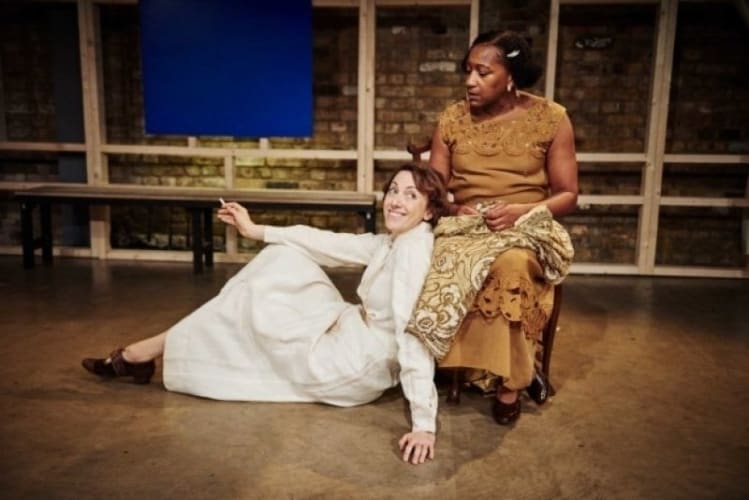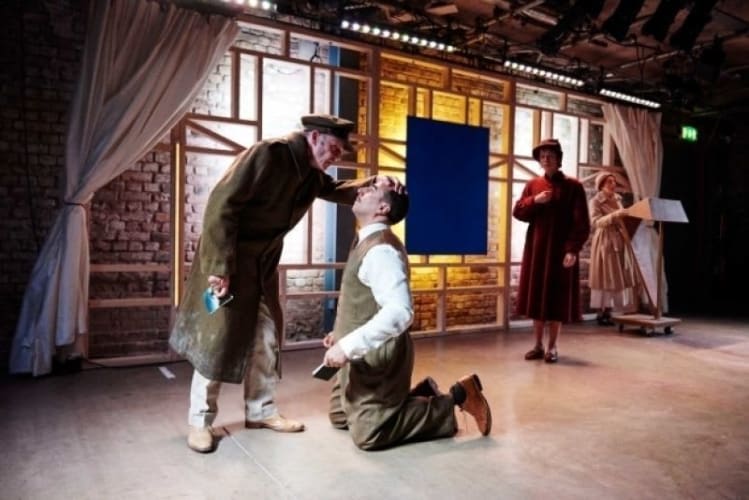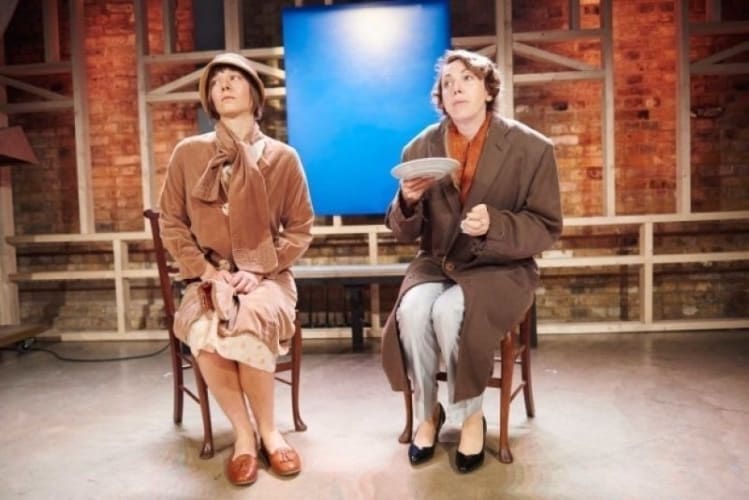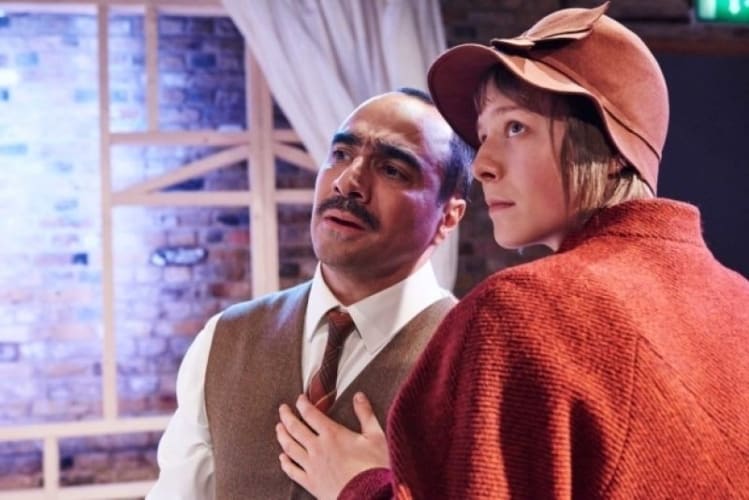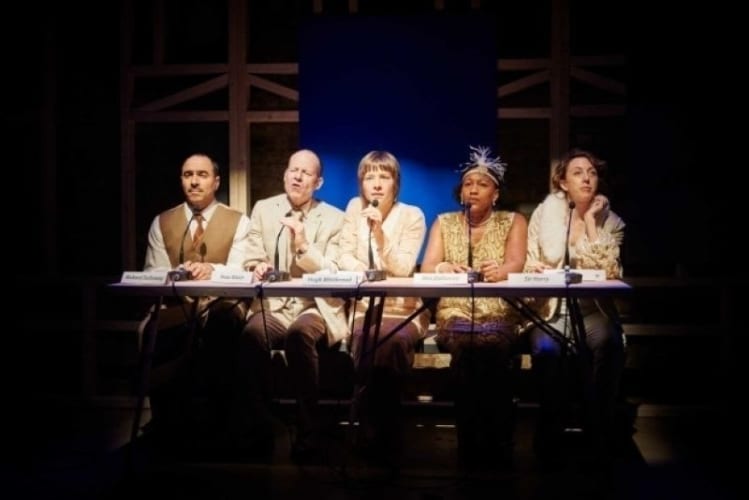This adaptation of Virginia Woolf’s novel is presented with stylish simplicity and theatrical flair.
Hal Coase opens the play with cast introducing themselves and talking about the writer’s ideas about how we read character or describe it and that is something that both book and play explore. Although they occasionally speak from a lectern, this doesn’t turn into a lecture but interweaves voices expressing flowing stream-of-consciousness thoughts with dialogues as it presents upper-middleclass Clarissa Dalloway preparing for a party and the party itself in the evening.
How do you know what anyone is really like? How can we know Mrs Dalloway? “You must seek out the people and the places that complete her,” they tell us.
It is June 1923 and Mrs Dalloway lives in Westminster (her husband in the Government), the chimes of Big Ben punctuate the day. She starts it by going out to buy flowers. We see her relationship with her daughter Elizabeth, her revulsion for frumpy Miss Kilman, a teacher attracted to Elizabeth. We meet Peter Walsh, a former suitor, and Seaton, now married into the peerage and mother of five boys but whom Clarissa remembers as lively and for the way that she kissed her. There are glimpses of the upper crust guests in the evening.
In parallel, we hear another story: that of Septimus Smith, returned from the trenches with what we now call post-traumatic stress disorder, still having nightmares and becoming suicidal. In what becomes the clearest plot line, we see him with his Italian wife Lucrezia consulting a fashionable psychiatrist. The two strands converge when his suicide becomes part of the evening’s gossip.
Clare Perkins gives Clarissa Dalloway a rich voice and a certain gravity, very conscious of her place in society, and Guy Rhys is a moving Septimus, Sean Jackson an elegant Peter and Clare Lawrence Moody a gauche Miss Kilman. The comic touch to the playing of the teacher and an exaggeration of the narrow upper class characterisations of many of Mrs Dalloway’s guests help to emphasise the way that we shouldn’t judge character from insufficient acquaintance.
Designer Louie Whitemore has dressed the cast very much in period but, perhaps to sharpen a Brechtian awareness, director Thomas Bailey introduces modern props such as mobile phones and today’s newspaper and an Oyster Card for a train ticket. Though Miss Tilson’s shabby raincoat is described, that is not what she is wearing and for the party he uses a Wooster Group-style staging with a line-up behind microphones to represent all the guests with a plethora of name cards. Such devices also make it not seem so surprising that there is a silver-suited personification of self-styled goddess Divine Proportion!
The idea that “the people we care for most are no use to us” and its repetition of Shakespeare’s dirge “Fear no more the heat of the sun” seem to look forward to Woolf’s own suicide. This adaptation interweaves so many strands that it is difficult to make them all fit together. Perhaps it risks overload for it is very intense with no interval but it is continually inventive.
